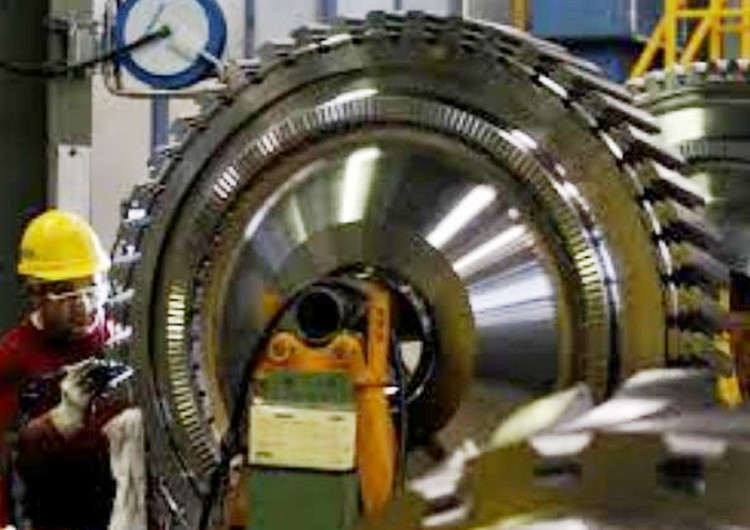Siemens AG, the largest industrial manufacturing company in Europe, reported a 49 percent plunge in profit in its first quarter ending Dec. 31 even as it contends with slower growth this year.
It posted a net profit of $1.25 billion between October and December, a fall of 49 percent year-on-year. The company blamed the dramatic drop on higher taxes and waning demand for its multi-million dollar power turbines as utilities resort to renewable energy. Revenues fell 1 percent to $23 billion.
The profit drop stands in contrast to the year-earlier quarter when Siemens profited from U.S. tax gains. It also received one-time revenue from the sale of shares in lighting firm, OSRAM Licht AG.
Siemens CEO Joe Kaeser said the company has "much to do" to achieve industry-leading profit margins again. He was, however, buoyed by stronger order intake, which he said was a positive for future earnings. Kaeser still predicts "moderate growth" in revenue in the company's 2018-19 financial year to September, excluding the Alstom rail merger.
Siemens said it will complete the merger of its trains business with France's Alstom SA in the first half of the year. Both firms have offered changes in the deal to try to overcome objections from EU competition authorities. A decision sshouold come by Feb. 18.
Demand for turbines to generate electricity from fossil fuels has dropped significantly as countries and utilities move toward wind, solar power and other forms of renewable energy. The company's power and gas division reported 50 percent lower operating earnings.
Orders rose 13 percent to $28.8 billion, helped by a $1.8 billion contract for trains for the London Underground, and a $915 million order for 32 trains from VIA Rail Canada.
Kaeser also blamed the Directorate-General for Competition (DG-COMP) for his company's woes. He again blasted the European Commission and DG-COMP for holding-up the Alstom deal.
"It will be interesting to see if the future of mobility will be determined by backward-looking technocrats or by future-oriented Europeans," said Kaeser with a hint of scorn.
Siemens has always said the tie-up is needed to defeat new global competition from Chinese rail behemoth CRRC. On the other hand, EU officials believe a combined group could be too dominant in the European market.
The company's Mobility Division did well in the quarter, clinching a $1.83 billion contract to supply new trains for the London Underground. Profits at the Mobility Division were steady at $270 million, following a good July to September quarter.
"There is still much to do before we achieve industry-leading margins in all our businesses," said Kaeser.
He said Siemens' hobbled energy division continued to "disappoint," even after a massive restructuring last year in which it cut 7,000 jobs.





